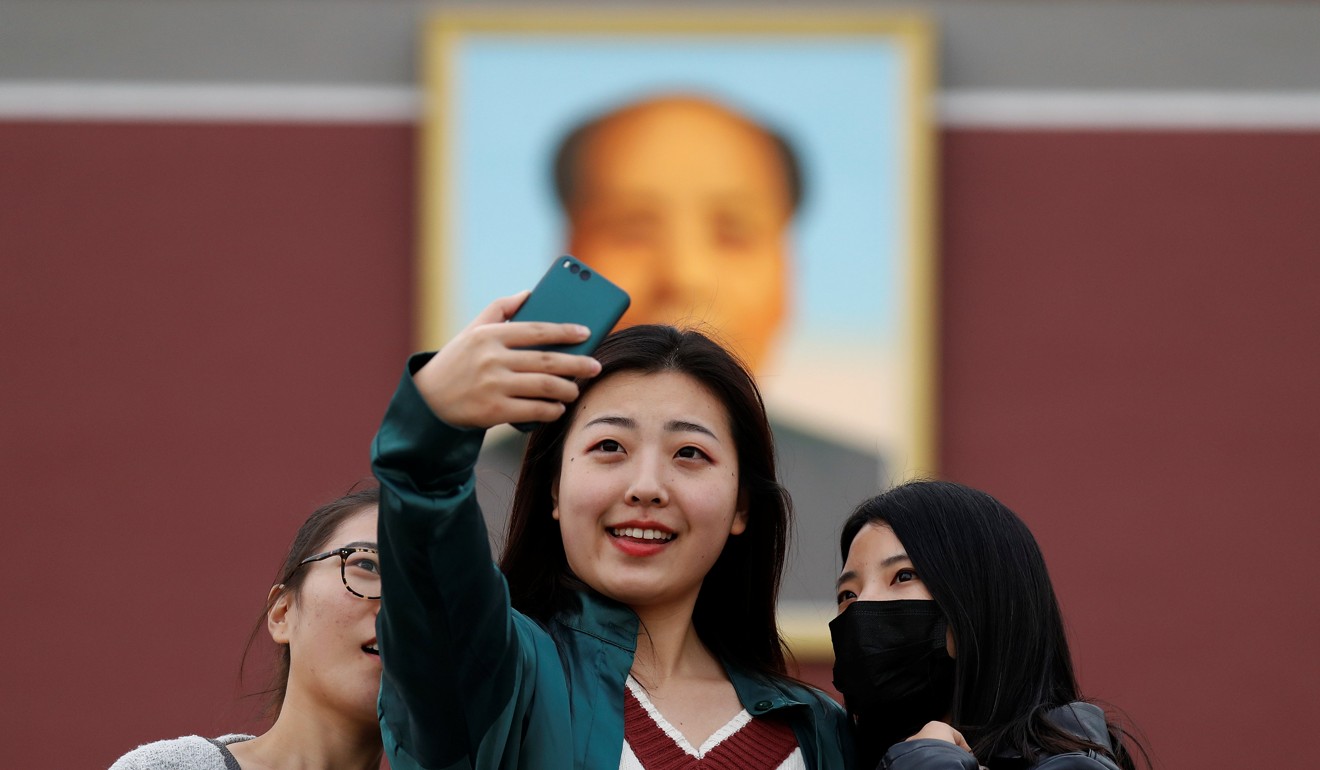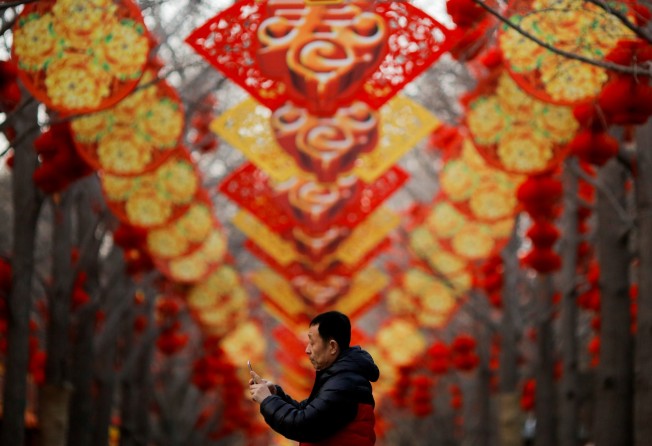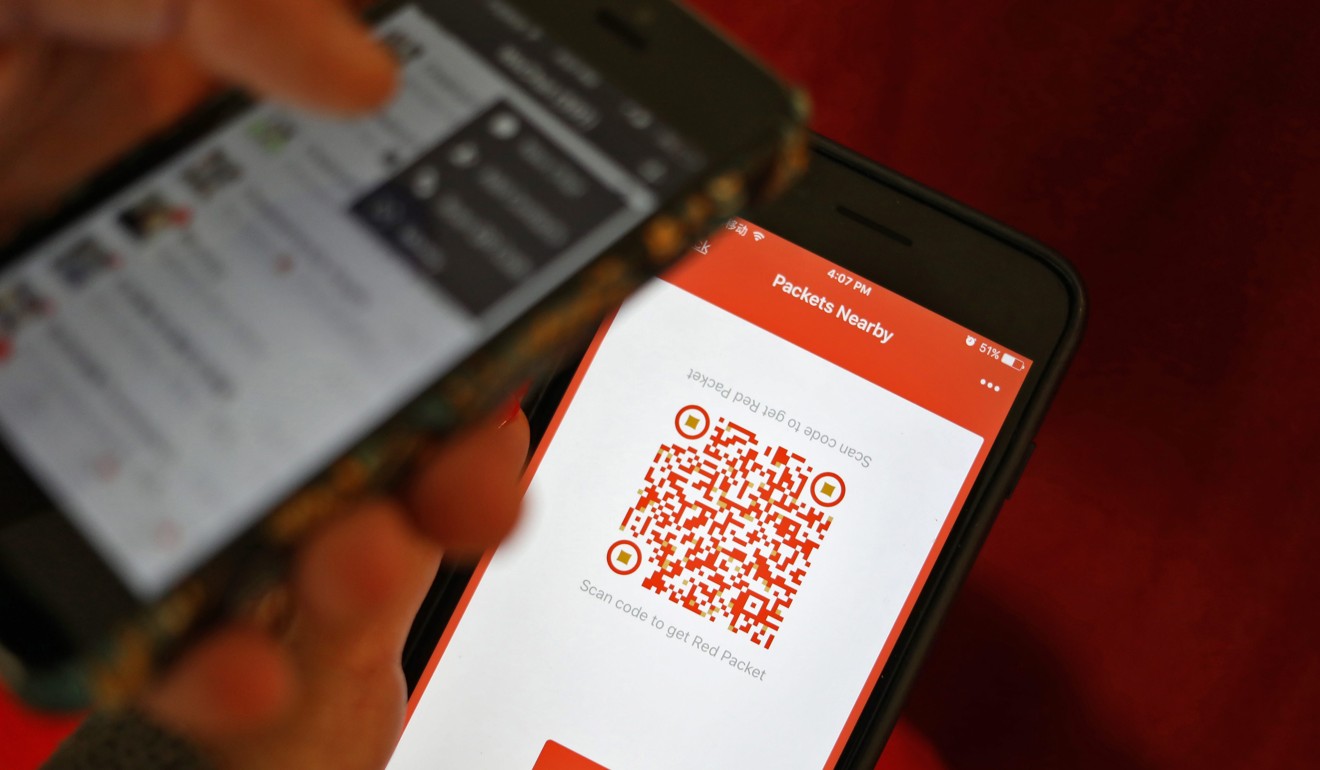
China at rest: what Lunar New Year looks like through its most popular social media platform
The Lunar New Year holiday, or Spring Festival, is China’s most important holiday, and data from China’s social media giants highlights the habits of the nation at rest

Like Thanksgiving or Christmas in the US, the Lunar New Year holiday in China is a time for family reunions and catching up with far-flung relatives and friends. Hundreds of millions travel prodigious distances to get back home, so what do Chinese do during the five-day public holiday also known as the Spring Festival?
Messages and wefies
Users of Tencent Holding’s ubiquitous WeChat service, a social media-to-gaming platform, sent a lot of messages, both text and voice, and posted a lot of selfies and wefies, according to usage statistics released for the February 15 to 21 period by the company.

A total of 229.7 billion WhatsApp-like text messages were sent on the WeChat platform during the February 15 to 21 period, 2.8 billion Facebook-like postings were made and 17.5 billion minutes worth of voice recordings, the data shows. Most of that would have been congratulatory messages and well-wishes for the Spring Festival, and lots of photos of reunion dinners, New Year markets and group photographs with family and friends.
Virtual red packets
The practice of handing out red packets, or hongbao, containing cash to family, friends and colleagues has increasingly gone online in recent years in China, with about 80 per cent of respondents in a recent survey saying they would choose to send digital versions. Sending hongbao via money transfers took off in part due to the vastness of China, with the money transfer helping to conquer the need for face-to-face meetings.

A total of 768 million WeChat users – or more than double the entire population of the US – sent or received hongbao via the platform, an increase of 10 per cent in numbers from the year before. The record number of red packets sent went to a man in Chongqing in western China, who gave out 2,723 over the five-day holiday period. An unnamed user in Nanchang in southeastern Jiangxi province held the record for receiving 3,429 red packets. Tencent did not reveal how much in total they gave out or received.
Alipay, China’s largest online payment service provider, said 251 million of its mobile app users participated in a promotion to collect five types of digital lucky cards bearing the Chinese character “fu”, which translates to “blessing”. They were eligible to share in 500 million yuan of awards, with the luckiest participants getting as much as a 666 yuan share
The affiliate of Ant Financial Services Group, which had 520 million registered users at the end 2017, said users from 2,300 global cities participated in the “fu” promotion, primarily mainland Chinese travelling abroad.
Hong Kong, Macau, Tokyo, Thailand and Singapore were the top five overseas destinations where Alipay users were most active with the “fu” collection promotion.
Ant Financial is an affiliate of New York-listed Alibaba Group Holding, which owns the South China Morning Post.
Mobile games
What does one do after the reunion dinner is held, the routine pleasantries exchanged with distant cousins, aunts and uncles, and one has watched another rerun of the Lunar New Year Gala? For the younger set of marriageable age, that would be playing mini-games on WeChat.

The addictive platform-jumping game Tiao yi tiao continued to be the most popular choice for people looking for distraction, or refuge from probing questions from relatives. The game, which users can access without downloading or installing additional apps, has its most fervent players resorting to plug-in software, or bots, to help them boost their scores that are shared over WeChat.
At its peak, a total 28 million people were playing these mini-games on WeChat per hour, according to the company.
Shopping and travel
On Lunar New Year’s eve, 150 million Taobao users opened their mobile app to compete for 600 million yuan of digital cash giveaways disbursed by China’s largest e-commerce platform during the annual New Year’s Gala special by state broadcaster China Central Television (CCTV).
Separately, more than 300,000 Chinese families placed orders for their New Year’s Eve dinner through Alipay and Koubei, Alipay’s restaurant review and local services platform.
Besides everyday gifts such as local specialties, health products, clothes and shoes, Taobao data shows that sales of drones, smart speakers and “sweeping” robots surged before the Chinese New Year, indicating that high-tech products have become a new gift trend among Chinese.
Alibaba’s online travel unit Fliggy said more people from modern Chinese cities like Shanghai, Beijing Guangzhou, Hangzhou and Shenzhen spent their week-long Lunar New Year holiday overseas. However, travellers from third- or fourth-tier cities tended to spend more on their overseas trips, with those from Taizhou, Jiangsu province, Zhangzhou, Fujian province and Zhaoqing, Guangzhou province, among the biggest spenders as seen from their overseas bills this year.